This is the second article in a series on healthy food and running.
Training is not the only thing that’s important for endurance runners if they wish to improve themselves and become stronger runners. In fact, sticking to a healthy diet and eating the right types of food to enhance their performance is equally important.
I recently interviewed clinical and sports dietician Jaclyn Reutens, 34 – who has her own clinic at the Camden Medical Centre – about nutrition and running, including how to carbo-load before a race.
Here is what Jaclyn said.
Why is nutrition and diet important for runners?
The goals of sports nutrition are to provide energy and delay the onset of fatigue for runners to give the best personal timing.
Runners need a good balance of nutrient dense foods complete with vitamins and minerals to maximize their running performance. Be it for a training session or for an actual race day, the choice of foods can make or break your performance. This is because if you are not fuelled correctly, no amount of training and conditioning can help you at this stage. Take a car for example. If your fuel tank is empty, even if you have a Ferrari engine, your car is not going to move.
What benefits do proper nutrition have in terms of running performance?
Proper nutrition enables the runner to be adequately charged before their run and replenished afterwards, to encourage a good recovery for the muscles and liver glycogen.
Good nutrition also keeps the runner is in good health and shape. A lighter physique (but not skinny) is generally preferred as there is lesser impact on the knees and there is lesser weight to carry.
Good hydration strategies delays/prevent cramps and fatigue.
How does a poor diet hinder running performance?
A poor diet impedes recovery for muscles and tissues and can cause strain and muscle tears.
A poor diet can also result in low iron status especially in female runners because of the loss of blood during a menstruation cycle. If they do not replenish their iron stores, they may be at risk of iron-deficiency anaemia. In more serious cases, this can result in an irregular menstrual cycle.
The desire to achieve more lean body mass may result in disordered eating and lack of energy. You will ‘hit the wall’ faster. ‘Hitting the wall’ is when your body runs out of fuel and you collapse. You just cannot go any further.
Are there any types of foods that endurance runners should stay clear of eating?
Endurance runners should cut back on oily and fatty foods. Some examples include creamy soups, creamy salad dressings and deep fried foods coated in batter or crumbed. Other food items to cut back on, include the following: cream, butter, mayonnaise, fatty meats, chicken skin and highly processed items like sausages and nuggets.
The reason for this is because high fat foods stay in the stomach longer and you will feel sluggish and tired easily.
Also, a high intake of these calorie dense foods makes weight control difficult. A high fat diet is disadvantageous to increasing muscle and liver glycogen storage as your liver will be ‘distracted’ by handling the fat – it could be better utilized to laying down glycogen stores.
Maximizing glycogen stores is the key for an endurance runner because a lack of it will lead to the onset of fatigue. Therefore, you should do all you can to maximize these stores. If you have a preference for fried or creamy foods, taking them out of your diet will see great improvements in your run timings.
Does today’s tasty hawker fare and convenience foods have a place in the healthy diet of a runner?
There is the good and bad of our local fare. The obvious unhealthier choices like fried kway teow, mee goreng and roti prata should not be consumed frequently because of the high fat content. However, soupy food items such as noodle soups, yong tau foo and sliced fish soup, can be part of a healthy runner’s diet. They are lower in fat and digests fairly quickly so it does not slosh around in the stomach during the run.
Economy rice can be good and bad. Pick the steamed items or items that are not deep fried. Always include vegetables because they provide essential vitamins and minerals.
Curry gravies should be avoided as it is high in fat.
Some recreational athletes who take up marathon running may sometimes think that they can eat what they want, because of the amount of calories they are expending. What are your comments?
The quality of calories is just as important as the amount. If you expended 1000kcal in your training session and you ate 1000kcal worth of fast food (double cheese burger, large fries and soft drink) after a run, this wouldn’t be good. This is because fast food is high in sugar and fat, especially saturated fat. Not only is this meal devoid of vitamins and minerals such as vitamin C, iron and calcium which is necessary for runners, it delays the recovery of your muscles and does not replenish essential minerals like potassium. Calorie-wise, you will be in calorie balance but from a sports nutrition perspective, you are inadequately nourished. Eat wisely and choose wholegrains, fish, lean meat, skinless poultry, vegetables and fruit.
Usually, you are recommened to eat whole grains but cut down on sugar and high GI carbs to maintain a healthy diet. How would this type of advice impact endurance runners, who sometimes need a quick fix of energy to boost performances?
Sugar and high GI carbs do have a place in a runner’s diet but they must be eaten in correct quantities and timing. High fiber foods such as cereal bars, wholemeal bread and fruit may increase the risk of gastrointestinal upset when consumed just before or during exercise. This is when sugar and high GI carbs come in handy to provide a boost of energy without risking stomach upsets because they digest quickly.
On the flip side, if you overeat these foods, you do run the risk of unnecessary weight gain. So see a sports dietitian to ensure you eat them correctly.
What are your comments on carbo-loading amongst runners prior to a race?
Carbohydrate loading can elevate muscle glycogen up to twice the concentration of the resting muscle, which is highly desirable. High carbohydrate intakes enhance the capacity of the muscle to undertake prolonged submaximal exercise such as endurance running. It is useful for running events longer than 90 minutes as that is usually when glycogen stores are activated to be utilised.
What is an example of a one-day carbo-loading diet for an endurance runner?
I’ll give an example of a high carbohydrate diet for a 70kg male of normal Body Mass Index – to be used one to three days before race day
What are the top three sources of carbohydrates that runners should have – before and after a race?
Isotonic drinks provide fluid and carbohydrates that are useful for pre, during and post runs.
Rice (brown or white) is an easily available and great source of carbohydrate and B vitamins. B vitamins are needed for generating energy from carbohydrate foods making them available to the body. It is great for before a run.
Low fat yoghurt with fruit provides carbohydrate and protein, which is perfect for after a race. The bonus is that it also contains calcium.
What is a good post-recovery drink, after a run?
Isotonic drinks such as 100plus, H-Two-0 and Gatorade are good choices. To be labelled as an isotonic drink though, it needs to have six to eight per cent of carbohydrate, potassium and sodium which is the concentration best absorbed by the stomach to replenish stores almost immediately.
How much water should a marathon runner be drinking before and during a race? Can he or she drink too much water?
Pre-race hydration
Most runners can handle 300-400ml of water/isotonic drink and that will be sufficient to be well hydrated for the run. This assumes though, that they have been drinking enough water the night before (or for a night race, drinking enough water during the day).
During the run
Ideally, drink three sips of fluid (water or isotonic drink) every 15 minutes (in reality, it is more like 30minutes). If the run is more than 60 minutes long, isotonic drinks are preferred as they contain glucose and electrolytes.
You can overload on water causing hyponatraemia but that is extremely rare. You would need to drink about 10 litres of water and not sweat it out.
In long distance running, we always encourage consumption of isotonic drinks because that prevents water overload and also benefits performance.
Any tips on healthy eating or drinking for runners?
- Do not restrict carbohydrate intake drastically even if you are trying to lose weight. Chances are that you will deprive your body unnecessarily of energy for your run.
- Fruits and vegetables are essential everyday. They assist in recovery and repair for muscles and tissues.
- Hydrate yourself adequately. Check the colour of your urine, it should be light yellow or colourless.
For more information, see Jaclyn’s website at: www.aptima-nsc.com
Related Blog Posts
- What Do Mok Ying Ren and his buddies eat?
- I Eat Anything vs. Vegetarian Diet: Mok Ying Ren Vs. Russell Ericksen
- Tasty but Healthy Sprouted Grain Bread By Sunshine Bakery


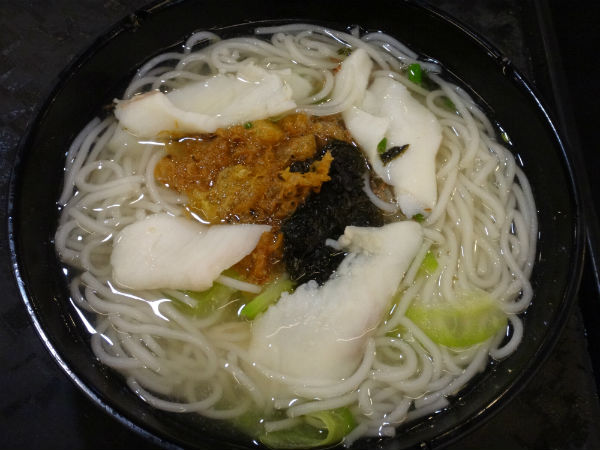

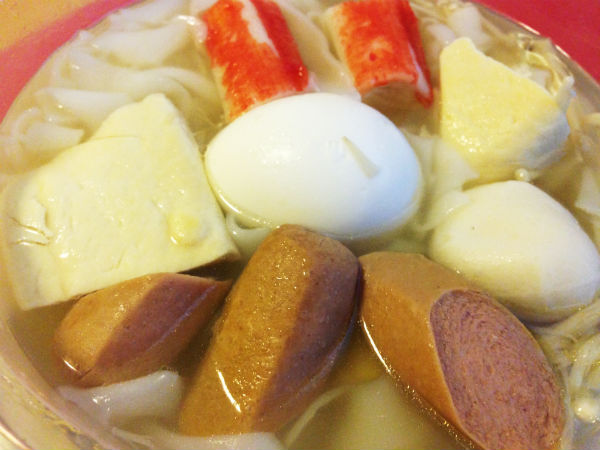

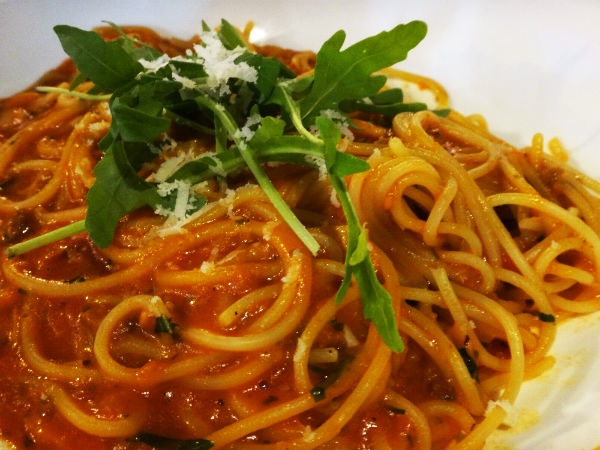
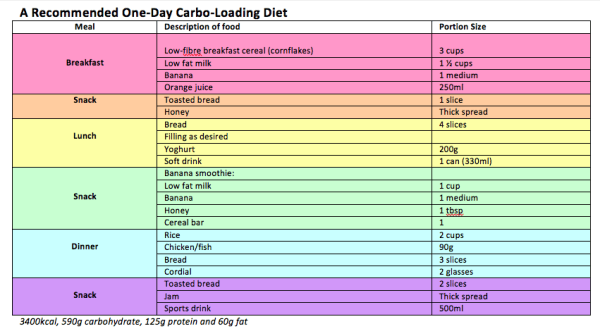
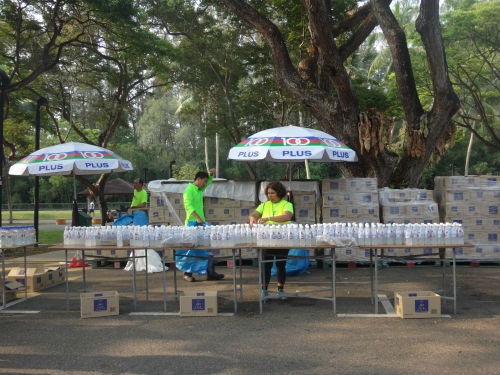
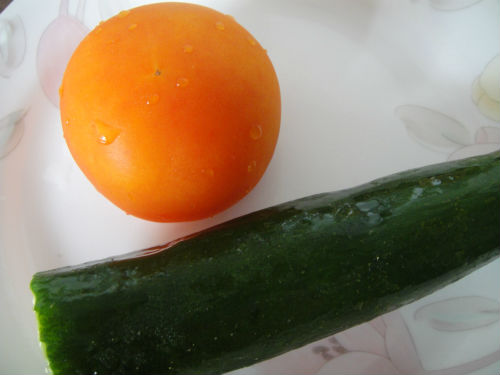
Leave a Comment